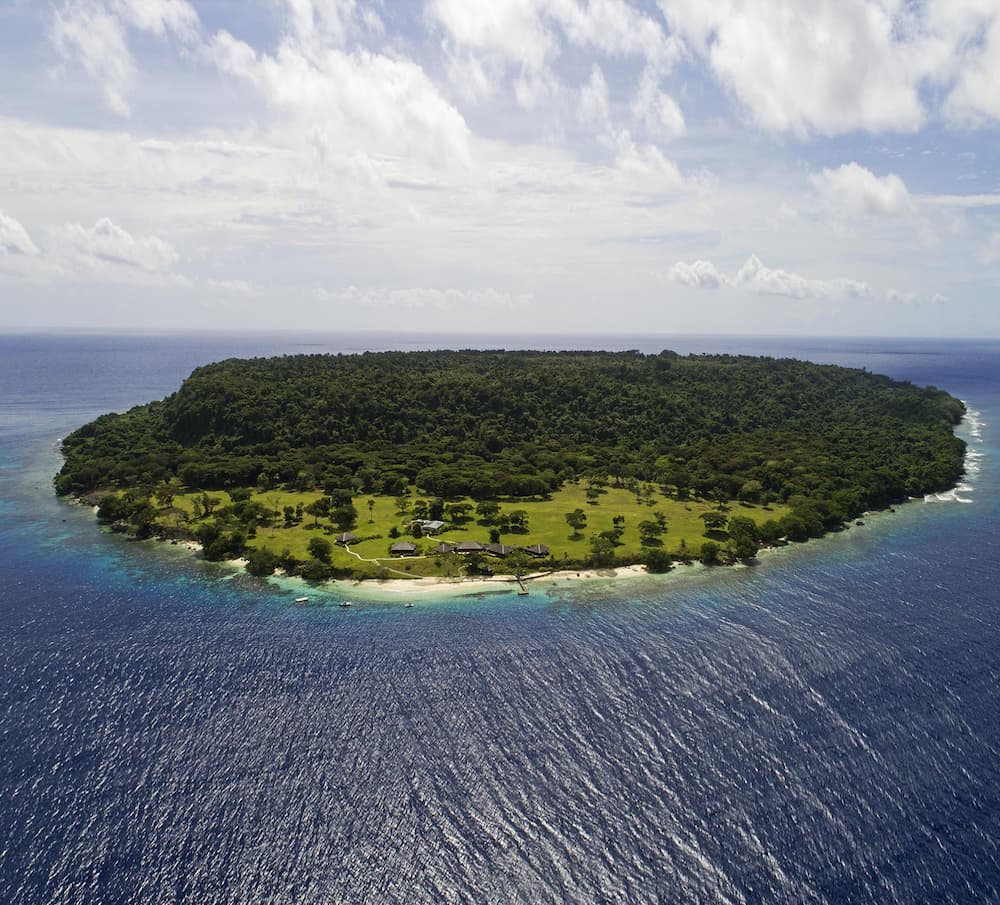A new technology bubble is raising up, and this time it involves already existing bubbles as well as an old libertarian dream. A group of businessmen, PR specialists, crypto coders and 3D modellers announced an establishment of a virtual-cum-physical crypto capital of the world on a Vanuatu, small island located between Australia and Fiji. The island, allegedly owned by a mysterious Satoshi Island Holdings Limited, on which top management and legal control no information is available through verifiable sources. The island is intended to become a home for crypto professionals and a deregulated stronghold of a blockchain based economy.
The owners offer ‘citizenship’ to Twitter users and Etherium wallet holders, which can be purchased or gifted as an NFT. The ‘citizens’ are an exclusive group of early adopters and crypto enthusiasts, who effectively pay for the crypto heaven. The island economics is built on two types of NFTs: Citizenship and Land NFTs. The Citizenship NFT holders have the right to future Land NFT mints and airdrops. They’ll also be the first allowed on the island. The Citizenship section has a disclaimer warning “Satoshi Island Citizenship NFTs have no relation to citizenship of Vanuatu.” A land NFT holder will need help of the island’s real government to convert this NFT into a traditional deed logged on Vanuatu’s land registry. In line with the slightly shady image of crypto, the developers state that their clients can take advantage of Vanuatu’s “well respected citizenship by investment program for people looking for a second passport”.
Much of the island is reserved for co-working space allowing start-ups to hold events or permanently reside on the island, and the sales pitch is targeting this particular community. A Land NFT provides the right to buy a building module. “Modular development is the future of city building, instead of decades they will be completed within a few short years,” states Satoshi Island website. Thinking about it for 5 minutes will get you to realise that what is meant here is a series of shipping containers with panoramic windows. None of the infrastructure described on the website exists and likely will never exist and the NFTs are the only asset on sale. The PR campaign is fittingly built mostly on FOMO and hot air. Behold the Bored Apes Yacht Club in real life.
This is not the first project of this nature. Libertarians of all types, starting from Peter Thiel, have tried to create communities on artificial islands or large vessels free from the prying eyes of the state and its tax collectors. Now the game is to buy real islands within remote jurisdictions and build the next crypto paradise there. The first attempt was “Cryptoland”, a start-up village and blockchain hub, founded in December 2021 by Max Oliver and Helena Lopez, Spanish YouTubers and known doxxes. The price to entry was an NFT-based acre of land and the sales pitch was best described by VICE.com as ‘an unhinged fever dream’. The island, also on Fiji archipelago, is still listed for sale and its size (less than 1 mile square) does not support the announced development plans. Cryptoland has taken down its unlisted sales pitch but their NFTs are still being sold and are priced from US$1m to US$350.
This growing trend is what I suggest to be one of the most innovative takes on a classic Ponzi scheme masked as a social innovation. It is enabled by the growing rift between the virtual and the real worlds, perpetuated by the digital space bubbles, meta-trends, and the growing perception of reality as a tangible kind of a virtual game. This bubble will burst but not before the digital native generation burn their fingers and re-discover the reality.

